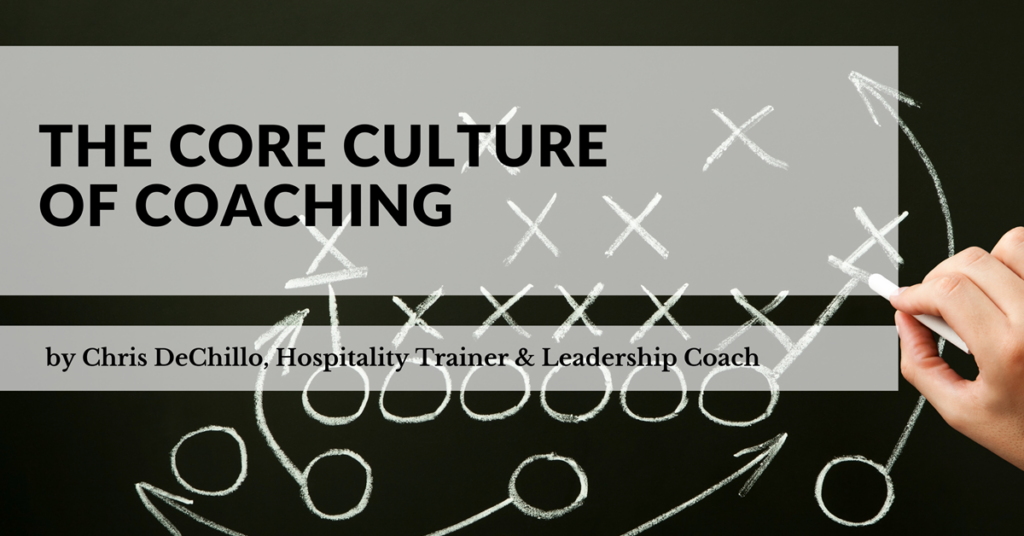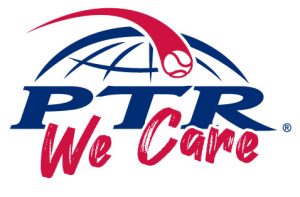The Co-Active Training Institute (CTI) defines coaching as “Partnering with individuals in a thought provoking, creative process that inspires them to maximize their personal and professional potential.” It allows the opportunity to help others find the best version of themselves, to be the best leaders for their team, and in many cases find balance so they can be present for their families.
During my 20 years in the hospitality industry, I have had the opportunity to work with some amazing people and to be honest some really challenging ones also, but my best boss was present. When I came to her with a challenge, she put down her phone, shut off her computer, and listened. Many times, I had the answers but could not access them because of the mess of information floating through my operations-minded brain. She gave me time to discuss ideas and weigh pros and cons, before realizing I already knew what I needed to do. Her message was centered around a central theme “make time for your people.” In the years that followed working for Karen, I made more time for those I was privileged to lead. In fact, sometimes I made time for those NOT on my team. My experience encouraged me to offer patience and curiosity. It led me to be mindful of asking questions that help people gain clarity and see what they already knew was right. My favorite fictional coach Ted Lasso misquotes Walt Whitman as saying, “Be Curious, Not Judgmental.” Regardless of who said it, this mantra continues to inspire me and my own curiosity.
Coaching is not about providing solutions. How can we have the right answer to another person’s dreams or aspirations? Leaders often think “I’m in charge”; “I have to have all the answers” (as one misguided leader told me over a decade ago); or “it’s my job to get things right.” When we give out solutions like a lollipop at the doctor, we deny others an opportunity to grow. If you try to help a butterfly out of his cocoon, he will not develop the muscles needed to fly. As a coach, there is the opportunity to be amazed by the transformation someone can make – sometimes during one conversation, because they were asked, “what’s on your mind?” A developing individual can see opportunity and clarity with the resource of a coach to guide them. Coaches empower them to recognize that fine line between crazy and innovative. Often people in positions of leadership can find themselves feeling isolated. Coaches help those they are privileged to walk alongside, rest easy knowing they are not alone.

A great place to begin a coaching journey is to fill in the Wheel of Life (WOL). This tool was first introduced to me by CTI, and it is used to help an individual gauge their satisfaction in eight different areas. It is important to note that the Wheel is used to measure satisfaction and not success, because the ratings change over time. A coach uses this information to help you grow in each area, and more importantly to strive for balance between the areas. The goal is not to reach a “10” in every category, but instead to have a wheel that looks and feels in balance.
For example, client “James” shared that he wanted to increase his level of satisfaction surrounding Personal Growth. Initially, he rated this category a “5” but would love to see what achieving an “8” feels like in a few months. During a chat about Personal Growth, he discussed his dad. After some questions about why he admires his dad, he landed on a desire to experience “Spiritual Endurance.” This epiphany was a highlight for me as a coach seeing the peace he found when given the tools to bring out his own brilliance.
How do we help others achieve moments like “James” and his discovery of Spiritual Endurance?” The answer is Powerful Questions. I am here to tell you that even as a professional coach these are still difficult for me. Don’t get me wrong – I have lots of questions I would like to ask pretty much everyone, but I had to first learn to listen before I got to ask Powerful Questions. Being present in today’s age of technology, distractions, and instant gratification has proven to be challenging. Powerful Questions are those that are deeply curious, open-ended, and non-judgmental. It is difficult to be deeply curious if we are not actively paying attention. Trust me, I know how obvious that sounds, but I once had a mentor who met with me weekly, while simultaneously checking his laptop, iPad, and iPhone. Most meetings would end with “Chris, you need to speak less and listen more.” It is difficult to listen more in a one-sided conversation, where the other person is distracted or disengaged.
The Alchemist by Paulo Coelho is a modern fable that follows a man in search of his “Personal Legend.” Have you ever had a Big Dream, or just an idea so crazy you didn’t dare utter it to another living soul? Many of these dreams never see the light of day, but if we embrace a coaching mindset, we can help others envision these dreams and potentially help bring them to life…but it takes time. Thoughtful questions are almost always open-ended, take time to answer and are for gathering insights, not just getting answers. According to Dr. Brent McCall the President & Founder of Presentation Impact “Your Listening Quotient is proportional to your Intelligence Quotient. The more we listen to someone, the smarter we become in their eyes.” In our discussion, Dr. McCall went on to share that he can get more done in the last 10% of a coaching session, by listening during the first 90%. The benefit for anyone looking to be a more effective coach, yet feels they don’t have the inherent skillset, is that by simply being a good listener we are perceived as being a more effective coach.
For a thoughtful response, a coach needs to allow the participant time to think. That means we need to lean into the silence. We must have the patience to listen, ask a Powerful Question, and finally the courage to SHUT UP for long enough, that the other person can ponder their response. In some cases, a great question might need more time for a truly thoughtful response. That may mean we table the question until our next meeting, so they can really give this topic some thought. This takes practice and self-restraint as a coach.
Good leaders and good coaches are foremost good listeners. To listen beyond surface level, we must understand the Three Levels of Listening as defined by CTI:
Level 1 – Internal listening, where your attention is focused on your own thoughts, feelings, and interpretations.
Level 2 – Intensely listening to others, where your attention is pointed with laser-like focus, on the other person you are listening to.
Level 3 – Global Listening, which has a soft, receptive focus that encompasses everything around you, including all your senses and your environment as well.
All of us intuitively are Level 1 listeners, but once you understand the different levels, you can practice and train yourself to be a more engaged listener. Most importantly you cannot be expected to listen at the same level all the time. It is natural to ebb and flow between Levels 2 and 3 and when you recognize that you’ve drifted into Level 1, simply adjust, and keep practicing. When you listen and ask great questions the other person will feel engaged.
One of my goals is to help make coaching approachable for you as a leader, but also for those in your circle of influence. This can feel daunting, but it is worth it. Your starting point is to give others the space to discover their own emotions. When we ask Powerful Questions, we guide those we are coaching in bringing their goals and dreams to light. Their dreams then have a chance to become reality. My job is not to hold them accountable but to be present and help celebrate their achievement as they cross the finish line.
You might walk away from reading this with more questions than you have answers…you’re welcome. It is good to have topics that we need to further research and study, as this forces us to evolve and change. I want to challenge you to stay collaborative, engaged, and open to other’s perspectives. Here are a few practical applications for how to keep your skills sharp, so you can best serve those around you:
- Read on topics that excite you, push your comfort zone and help fine tune your leadership style. Book suggestions: The Go-Giver; Radical Candor; The Servant; and The Coaching Habit are a few good places to start.
- When mentoring someone focus on what is possible. Coach the individual and not the task.
- Try completing the WOL for yourself to see if your “wheel” is in balance.
- When it comes to accountability, establish and move the needle on short term goals.
- Remember to remain coachable, even if you’re the “boss.”
Today’s workforce needs leaders brave enough to stop using a one-size-fits-all approach. Instead let’s remember Will Guidara’s suggestion, the author of Unreasonable Hospitality, that “one-size-fits-one.” Transformational Leadership starts with coaching and that requires developing a leadership strategy, instead of simply reacting to whatever is happening in the moment. It is easy to focus on developing direct reports vertically for their next role, or their next property. What most mid-level managers and directors need is a mentor who isn’t afraid to invest time in growing their skills horizontally. This will shape them into well-rounded leaders that understand how to listen and ask great questions. In doing so you are ensuring they can be their best, while also developing a strong pipeline for the next generation of Club Executives. Their Board members from the future already say, “thank you.”








